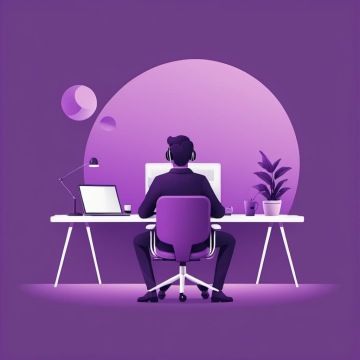Blog
Neuroscience in Action: How to Work Smarter and Build a Healthier Workplace
In this interview, neuroscientist Prof. Aleš Benjamín Stuchlík explains how the brain shapes the work of managers and organizations. You will learn why multitasking is a myth, how prolonged stress undermines performance, and why interruptions cost more than we think. He also highlights the importance of sleep, micro-breaks, and celebrating small steps. Stuchlík offers practical advice on using brain science for more effective work, employee development, and a healthier company culture.
A Doctor’s Take on Burnout: From Depression to Recovery
Burnout syndrome is a complex state of physical, emotional, and cognitive exhaustion caused by prolonged stress and work overload. In this interview, addiction specialist Adam Kulhánek shares practical insights. You’ll learn what happens in the brain and body under chronic stress, how burnout differs from depression, common self-treatment strategies and their risks, as well as the role of recovery duration, physical health, and lifestyle. At the end, the doctor offers his own tips for maintaining mental resilience and balance.
Through the Eyes of the Experts: How Gen Z is Changing the Workplace
Generation Z enters the labour market with different expectations and priorities than their predecessors. They are looking for meaningful work, work-life balance and an authentic company culture. How is this generation changing the ways in which companies approach the workplace and management?
Engagement, motivation and happiness at work: How can they be distinguished and supported?
In the workplace, we often encounter concepts such as engagement, motivation and happiness at work. Although they are related, they each refer to something different. Getting these concepts right is key to effective leadership and employee satisfaction.
The Path to Quality Sleep: Myths, Facts, and Science
We spend almost a third of our lives sleeping, and the quality of our sleep affects both our psychological and physical well-being. Yet many of us still underestimate its importance. We talked to neuroscientist Aleš Stuchlík and addiction specialist and wellbeing expert Adam Kulhánek to find out more. How can sleep deprivation be recognised? Is it possible to 'bank' sleep? And do we really need to sleep for eight hours?
Remote motivation: Key Strategies for Building Remote Team Engagement
The days of face-to-face meetings and kitchen chats are a distant memory for a large number of employees. Face-to-face meetings have been replaced by ZOOM and gossip sharing has moved into chat rooms. The mood of the team is no longer as easy to read, and engagement is down in many remote and mixed teams. How do you build company culture and engagement in such an environment? Is it even possible?
Bullying at work: How to recognize it and effectively defend yourself and others?
Indiscriminate jokes. Seemingly innocent banter. "Stray" invitations to important meetings. That's what bullying at work can look like. How do you spot bullying even when it looks innocent? And how to effectively confront it - whether as a victim or as a team leader?
8 steps to self-discovery: How to become the manager your team deserves
"Finding yourself" and self-discovery is often associated with adolescence and puberty, but in reality it is a lifelong process. New experiences, experiences and life roles shuffle the value ladder, influencing our attitudes and behaviour. But self-discovery (or rather, self-awareness) is a journey that's definitely worth embarking on - especially if you're in a management position and your decisions, behaviours and reactions affect how your team functions.
Navigating Current Trends and Challenges in the Corporate Environment: An Interview with Psychologist Kristyna Cetkovska
Let's explore the latest trends shaping today's workplace, from the four-day workweek movement to the evolving boundaries between professional and personal life. Discover strategies for managing stress, fostering productivity, and building a resilient corporate culture in the face of change.
Emotionally challenging layoffs through the eyes of psychologists
Read the basic recommendations from psychologists and psychotherapists on how to treat the emotions and moods associated with layoffs so that neither the mental health of employees nor the company culture suffers.
Psychological Safety: How to measure it and why it matters
Find out if there is something about psychological safety you can measure on your own and if so, how crucial it is.














